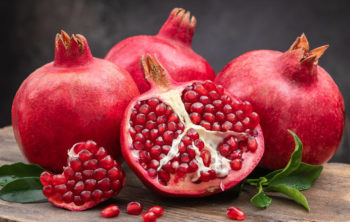Contents
Oranges: Nutrients, Health Benefits, Juice, and More
Oranges are a delicious and popular fruit enjoyed by people all over the world. But did you know that there are actually different types of oranges?
The sweet orange, or Citrus sinensis, is the most common type of orange. These oranges are typically eaten fresh or juiced. Sweet oranges originated in China and are now grown in many countries, including the United States, Mexico, and Spain.
But there are other types of oranges too! The bitter orange, for example, is often used to make marmalade. And the blood orange gets its name from its deep red color.
Oranges are an excellent source of vitamins and minerals, including vitamin C, folate, and potassium. They’re also a good source of antioxidants and phytochemicals, which are plant-based compounds that may protect against disease.
Studies suggest that oranges may offer several health benefits, including improved heart health, reduced inflammation, and better blood sugar control. What’s more, they’re a low-calorie food that can help you reach or maintain a healthy weight.
If you’re looking to add more oranges to your diet, there are many delicious ways to do so. You can enjoy them as a snack, add them to your breakfast or lunchtime meal, or even use them in recipes for dinner. No matter how you eat them, oranges are a nutritious and flavorful addition to any diet.
Nutrition Facts:
Oranges are a good source of nutrients like vitamin C, folate, and potassium. They’re also low in calories and fat, making them a healthy choice for snacks or desserts. Here’s a closer look at the nutritional content of oranges.
Oranges are a nutritional powerhouse, providing plenty of vitamins, minerals, and antioxidants. Here’s the nutritional breakdown for 1 orange (140 grams).
- Calories: Oranges are a low-calorie food, with just 66 calories in one fruit.
- Water: Oranges are mostly water, with 86% of their weight coming from water.
- Protein: Oranges contain a small amount of protein, with 1.3 grams per fruit.
- Carbs: The majority of the carbs in oranges come from sugar, totaling 12 grams per fruit. However, oranges also contain 2.8 grams of fiber, which helps offset some of the sugar content.
- Fat: There is almost no fat in oranges, with just 0.2 grams per fruit.
- Vitamin C: Oranges are an excellent source of vitamin C, providing 92% of the Daily Value (DV) in one fruit.
- Folate: Oranges also contain 9% of the DV for folate, a nutrient that’s important for pregnant women.
- Calcium: You’ll get 5% of the DV for calcium from one orange.
- Potassium: Oranges are a good source of potassium, with 5% of the DV in one fruit.
When it comes to carbs, oranges are mainly composed of simple sugars like fructose and glucose. However, they also contain some complex carbs like dietary fiber. The sugar content in oranges is mostly due to the natural sugars fructose and glucose.
Oranges are a good source of dietary fiber. One orange (140 grams) contains approximately 10% of the DV for fiber.
Fiber is an important nutrient for overall health and helps keep your digestive system healthy by supporting regularity and fueling your beneficial gut bacteria.
In addition, diets rich in fiber are associated with a number of other benefits, including decreased risks of heart disease, colon cancer, and obesity.
Oranges are a great source of several important nutrients, including vitamin C and folate. Just one 140-gram orange provides 92% of your daily vitamin C needs! This essential nutrient is involved in many important processes in the body, including immune function, collagen synthesis, and iron absorption.
Folate is another important nutrient found in oranges. This B vitamin plays a role in metabolism, fetal and placental development, and many other vital processes. In addition to vitamins C and folate, oranges also contain smaller amounts of calcium, potassium, and thiamine (vitamin B1).
So next time you’re looking for a healthy snack, reach for an orange! You’ll be getting a nutritious boost of several essential nutrients.
High In Beneficial Plant Compounds:
Oranges are an excellent source of various bioactive plant compounds that have anti-inflammatory and antioxidant effects. These include flavonoids, carotenoids, and vitamin C. These substances help protect cells and reduce inflammation throughout the body.
Flavonoids:
Oranges are a rich source of phenolic compounds, including flavonoids, which contribute to their antioxidant properties. Flavonoids in oranges have been shown to reduce the risk of cardiovascular disease and cancer. Orange peel is also a good source of dietary fiber. In addition, oranges contain vitamins C and A, as well as minerals such as calcium and potassium.
1. Hesperidin:
Hesperidin is a citrus flavonoid that’s found in oranges and other citrus fruits. It’s one of the main antioxidants in oranges and is thought to have several health benefits, including reducing blood pressure and inflammation.
Research on hesperidin is limited, but there is some evidence to suggest that it may offer health benefits. For example, one study found that taking hesperidin supplements reduced blood pressure in people with high blood pressure.
There is also some evidence to suggest that hesperidin may have anti-inflammatory effects. One study found that hesperidin supplements reduced inflammation in people with arthritis.
Overall, more research is needed to better understand the potential health benefits of hesperidin. However, the available evidence suggests that it may offer some benefits for overall health.
2. Naringenin:
Naringenin is a citrus flavonoid that has been linked to health benefits. Drinking naringenin-rich orange juice may help improve blood vessel function and enhance antioxidant defenses in the body. Naringenin is found in highest concentrations in grapefruit, followed by oranges and tangerines.
Other foods that contain naringenin include tomatoes, nuts, and leafy green vegetables. Some research suggests that naringenin may have beneficial effects on cholesterol levels, blood pressure, and inflammation. Additionally, naringenin has been shown to protect cells from damage caused by oxidative stress.
These potential health benefits make naringenin a promising natural compound for preventing or treating a variety of chronic conditions.
Carotenoids:
One of the best ways to enjoy the benefits of carotenoids is to drink fresh orange juice. A recent study found that doing so can help increase skin carotenoid levels, which are good indicators of total antioxidant status in the body.
Not only do oranges provide plenty of carotenoids, but they’re also a good source of vitamins C and E, two other important antioxidants. So make sure to add oranges to your diet if you’re looking to improve your overall health and well-being.
1. Beta-cryptoxanthin:
Beta-cryptoxanthin is a powerful antioxidant that can help protect cells from damage. In addition, beta-cryptoxanthin can be converted into the active form of vitamin A, making it an important nutrient for overall health.
2. Lycopene:
Lycopene is a powerful antioxidant found in high amounts in red-fleshed navel oranges (Cara Cara oranges). It has various health benefits, and getting enough in your diet may help protect you against heart disease. Some research suggests that lycopene may help reduce the risk of stroke, as well as other cardiovascular conditions.
Additionally, lycopene has been shown to boost immunity and increase levels of good HDL cholesterol. Because of its potent antioxidant properties, lycopene is also thought to help protect cells from damage caused by free radicals. Free radical damage is believed to contribute to the development of many chronic diseases, such as cancer and heart disease.
Getting plenty of antioxidants like lycopene in your diet is one way to help reduce your risk of these diseases. Lycopene is not just found in oranges; it’s also found in other red fruits and vegetables, such as tomatoes, watermelons, and pink grapefruits. So, eating a diet rich in these foods may offer even more health benefits.
The best way to get lycopene into your diet is to eat plenty of fresh fruits and vegetables. However, you can also find it in supplements. If you decide to take a supplement, be sure to talk to your doctor first to ensure it’s right for you.
Vitamin C:
Vitamin C is an important antioxidant that can help protect against a number of chronic diseases. Higher dietary intake and blood concentrations of vitamin C have been linked to a lower risk of heart disease, cancer, and death from all causes. To maintain optimal health, it’s essential to consume foods and beverages that are rich in vitamin C, like oranges.
Health Benefits Of Oranges:
The health benefits of citrus fruits are numerous, and according to research findings they may be just what you need for a healthy lifestyle.
Helps Promote Heart Health:
Oranges are a good source of nutrients and plant compounds that may promote heart health and reduce the risk of heart disease. These include vitamin C, flavonoids, and carotenoids.
Regular consumption of oranges or orange juice may help reduce heart disease risk factors such as high blood pressure, high cholesterol, and inflammation. Additionally, oranges are a low-calorie fruit and can be part of a healthy diet for weight loss or maintenance.
If you’re looking to incorporate more oranges into your diet, there are many ways to do so. Eat them whole as a snack, add them to salads or main dishes, or drink fresh-squeezed orange juice. Whatever form you choose, oranges can be a delicious and nutritious addition to your diet.
Orange juice has been shown to reduce several heart disease risk factors, including levels of blood sugar, LDL (bad) cholesterol, and the inflammatory marker C-reactive protein (CRP). These findings suggest that orange juice may help protect against heart disease.
Diets High In Citrus Fruits May Protect Against Chronic Diseases:
Oranges and other citrus fruits are not only good for heart health, but they may also help reduce the risk of cancer and diabetes. Studies suggest that diets high in citrus fruits may help protect against several types of cancers, including:
- Lung cancer.
- Mouth cancer.
- Stomach cancer.
- Head and neck cancer.
Citrus fruits are not only delicious, but they may also help reduce your risk of developing type 2 diabetes. One study including over 7,000 Australian adults found that those with moderate total fruit intakes that included oranges and other citrus fruits were 36% less likely to be diagnosed with diabetes at 5 years, compared with people with the lowest fruit intakes.
This study found benefits connected to eating fruits, in general, and it didn’t isolate the benefits of eating whole oranges, specifically. In addition, it didn’t find the same beneficial effects in people who drank fruit juice. Keep in mind that this study only looked at the benefits of eating fruits, in general, and not just oranges specifically. It’s possible that there are even more benefits to be had from eating whole oranges rather than just drinking their juice. If you’re looking to improve your health, adding oranges to your diet is a great place to start.
Citrus fruits are often touted as being healthy due to their high vitamin C content. However, these fruits can also have some downsides. For example, citrus fruits are typically very acidic. This can lead to digestive issues for some people. Additionally, citrus fruits can interact with certain medications. Therefore, it is important to speak with a healthcare professional before adding them to your diet.
Additionally, while citrus fruits may have some health benefits, they should not be the only focus of your diet. Remember that eating a variety of healthy foods and maintaining a healthy lifestyle is the best way to reduce your risk of developing chronic diseases.
Anemia Prevention:
If you’re looking to prevent anemia, adding oranges to your diet is a good idea. Oranges are rich in vitamin C, which helps your body absorb iron. Iron is essential for preventing anemia, so including oranges in your diet can help keep you healthy and free from this condition.
One study found that adding 120 grams of orange to meals composed of rice or flatbread with lentils or a greens-based dish called saag enhanced the bioavailability of iron by as much as 10.7%. This means that the body was able to absorb more iron from these foods when oranges were added.
Try adding a sprinkle of orange juice to lentil and bean dishes, or adding orange segments to spinach salads to help enhance iron absorption. You could also try other citrus fruits like grapefruit, lemon, or lime. Just remember to pair them with iron-rich foods for the best results.
May Help Support Immune Health:
Fruits are not only delicious, but they can also help boost your immune system. Oranges and other citrus fruits are excellent sources of vitamin C, which is critical to the function of immune cells like natural killer cells. Vitamin C is also necessary for a process called apoptosis, in which old, damaged cells die, then are cleared out and replaced with new healthy cells. So, make sure to include plenty of fruits in your diet to keep your immune system functioning properly.
Vitamin C is a powerful antioxidant that helps protect against oxidative damage, which can otherwise negatively affect immune health and increase disease risk. Other compounds in oranges, including hesperidin and naringenin, have anti-inflammatory activities. These properties make oranges an excellent fruit for supporting overall health and well-being.
Oranges are a great source of nutrients that can help support immune system health. The vitamin C in oranges is a powerful antioxidant that can help protect cells from damage and reduce inflammation. Fiber is another nutrient provided by oranges that can help promote immune health.
Your body needs fiber to maintain a healthy balance of gut bacteria, which influence immune system development and function. Regularly eating oranges as part of a healthy diet may help keep your immune system strong and functioning properly.
Whole Oranges vs. Orange Juice:
While orange juice and whole oranges are both packed with nutrients, there are some key differences between the two.
Fiber Content:
One cup (248 mL) of pure orange juice has nearly double the calories of a whole orange and contains almost twice as much sugar. Plus, orange juice contains much less fiber than whole oranges, so it’s much less filling. This means that if you’re trying to lose weight or watch your calorie intake, it’s better to eat a whole orange rather than drink its juice. However, if you are looking for a quick source of vitamin C, then pure orange juice is a good option. It just depends on your dietary needs and goals.
Fruit juice, while containing some of the same vitamins and minerals as whole fruits, is lacking in other important nutrients. Fiber, for example, is found in the skin and pulp of fruits which is removed during juicing. This means that you miss out on the benefits of fiber when you drink fruit juice, including improved digestion and a feeling of fullness after eating. In addition, fruit juices are often high in sugar and calories, making them a less healthy choice than whole fruits.
Added Sugar:
If you’re looking for a nutritious drink, orange juice is a good option. It’s rich in vitamins and minerals, and it can help you stay hydrated. Plus, some orange juices contain added sugars, which you should keep to a minimum for optimal health. Although quality orange juice can be a healthy choice when you consume it in moderation, choosing whole fruit more often is a smart choice.
Adverse Effects:
If you have an orange allergy, you may experience symptoms such as itching, swelling, and hives. You should avoid eating oranges or drinking orange juice if you are allergic to them.
For people who experience heartburn, eating oranges can make symptoms worse. This is because oranges contain organic acids, mainly citric acid and ascorbic acid (vitamin C). If you suffer from heartburn, you should avoid eating oranges or drinking orange juice.
Watch Health Benefits Of Oranges Video:
This video provides an overview of the health benefits of oranges, as well as some fun facts about the fruit.
FAQs of Oranges:
1. How to eat oranges?
Oranges are a versatile fruit that can be enjoyed in many different ways. Here are some ideas for incorporating oranges into your diet:
- Enjoy them as a snack on their own or with a dip such as hummus or yogurt.
- Add them to your breakfast cereal or oatmeal.
- Use them in salads or as a topping on your favorite salad.
- Mix them into smoothies or juices for a refreshing treat.
- Use them in recipes for chicken, fish, or pork.
- Enjoy them as a dessert by themselves or in baked goods such as pies or muffins.
No matter how you eat them, oranges are a nutritious and delicious addition to any diet.
2. How many oranges a day to lose weight?
Oranges are a great source of fiber, vitamins and minerals, and can help you lose weight. But how many oranges should you eat per day to see results?
The answer depends on a few factors, including your calorie needs and weight loss goals. As a general rule of thumb, aim for 1-2 oranges per day if you’re trying to lose weight.
If you’re eating an orange as part of a healthy, balanced diet, there’s no need to worry about overdoing it. Eat as many oranges as you like! Just be sure to limit other high-calorie foods and beverages so that you don’t offset the calorie deficit you’re trying to create.
3. How many oranges can you eat a day?
Most people can eat up to six oranges a day without experiencing any negative side effects. Eating more than six oranges in a day could lead to digestive issues, such as diarrhea or an upset stomach. People who are sensitive to citrus fruits may have a reaction if they eat too many oranges. Symptoms of a citrus allergy include hives, swelling, and difficulty breathing. If you experience any of these symptoms after eating oranges, seek medical attention immediately.
4. How many oranges can kill you?
While the exact number of oranges that would be fatal to a human is unknown, it is generally agreed that ingesting large amounts of the fruit could be potentially lethal. This is due to the high concentration of citric acid found in oranges, which can lead to digestive issues and other serious health problems. Ingesting even a small number of oranges could result in nausea, vomiting, and diarrhea, so it is best to avoid them if you are feeling ill. If you do eat oranges, be sure to drink plenty of water to stay hydrated and avoid any potential complications.
5. Why oranges are good for you?
Oranges are a good source of vitamins and minerals, including vitamin C, which is essential for immune function and skin health. They also contain fiber, folic acid, and antioxidants. All of these nutrients are important for good health.
Oranges are a good source of vitamin C, which is essential for immune function and skin health. Vitamin C is a powerful antioxidant that can help protect the body from damage caused by free radicals. Free radicals are molecules that can cause cell damage, leading to various diseases.
Oranges are also a good source of fiber. Fiber is important for digestive health and helps to promote regularity. Folic acid is another nutrient found in oranges that is important for pregnant women as it helps to prevent birth defects.
The antioxidants in oranges can also help to protect against some types of cancer and other diseases. Overall, oranges are a nutritious fruit that can help to promote good health.
6. What oranges are the sweetest?
There are many different types of oranges, and each one has its own unique flavor. Some oranges are sweeter than others, and some have a more tart or acidic taste. So, what oranges are the sweetest?
Well, that really depends on your personal preference. Some people prefer sweeter oranges, while others prefer a more tart or acidic flavor. There are also many different factors that can affect the sweetness of an orange, such as the variety of orange, the climate where it was grown, and how ripe it is.
If you’re looking for a sweet orange, you might want to try a Valencia orange. Valencias are typically quite sweet, and they’re often used in juicing because of their high sugar content. Other sweet oranges include Navel and Blood oranges.
If you prefer a more tart or acidic flavor, you might want to try a Sour orange. These oranges are quite tart, and they’re often used in marinades and sauces because of their strong flavor. Other tart or acidic oranges include Cara Cara and Seville oranges.
Finally, the ripeness of an orange can also affect its sweetness. Oranges that are fully ripe tend to be sweeter than those that are not as ripe. So, if you’re looking for a sweet orange, make sure to choose one that is fully ripe.
7. What oranges are best for juicing?
Valencia and Navel oranges are two of the most popular types of oranges for juicing. Valencia oranges are known for their high juice content, while Navel oranges have a sweeter flavor.
Both types of oranges make delicious juices, but which one is better depends on your personal preference. If you want a tart and refreshing juice, go for Valencia oranges. If you prefer a sweeter juice, then Navel oranges are the way to go.
8. How many oranges in a pound?
A pound of oranges typically contains between three and four oranges. However, this can vary depending on the size of the oranges. For example, if the oranges are small, there may be more than four in a pound. Conversely, if the oranges are large, there may be fewer than three in a pound. Thus, the exact number of oranges in a pound can vary somewhat.
9. How many oranges to make orange juice?
If you’re looking to make a fresh batch of orange juice, you’ll need about 8-10 oranges. This will yield approximately one litre of delicious juice – perfect for quenching your thirst on a hot day! Just remember to wash your oranges before juicing them.
10. Where to store oranges?
There are a few things to consider when deciding where to store oranges. The first is temperature. Oranges should be stored at a cool, consistent temperature – between 55 and 60 degrees Fahrenheit is ideal. If the temperature is too cold, the oranges will lose their flavor. If it is too warm, they will spoil more quickly.
The second thing to consider is humidity. Oranges should be stored in a relatively humid environment – around 70% humidity is ideal. If the air is too dry, the oranges will shrivel and their skin will become dry and brittle. If it is too humid, they will mold more quickly.
The third thing to consider is light. Oranges should be stored in a dark place – out of direct sunlight. If they are exposed to too much light, they will become bitter and their skin will start to bleach.
Finally, oranges should be stored in a well-ventilated place. This will help to prevent them from molding.
So, the best place to store oranges is in a cool, dark, well-ventilated place with moderate humidity. A refrigerator set to 55 degrees Fahrenheit is a good option. Oranges can also be stored in a root cellar or other cool, dark place. Just make sure that the temperature is consistent and that there is adequate ventilation.
11. How oranges are harvested?
Oranges are typically harvested by hand. Workers will climb up into the orange trees and carefully pluck the ripe fruits from the branches. Once all of the oranges have been picked, they are collected in crates or bags and brought down from the tree.
After the oranges have been harvested, they will be taken to a processing facility where they will be cleaned and sorted. From there, the oranges will be packaged and shipped to grocery stores and markets all around the world.
12. How many oranges for 1 2 cup juice?
To make 1-2 cups of orange juice, you will need 2-3 oranges. Depending on the size of the oranges, you may need more or less to get the desired amount of juice. For example, if using small oranges, you may need 3-4 to get 1-2 cups of juice. If using large oranges, you may only need 2.
When juicing oranges, it is best to use fresh oranges that are in season for the most flavor. You can also use frozen orange juice concentrate, which will require less fresh oranges. Follow the directions on the package for how much concentrate to use per cup of water.
13. Which oranges have seeds?
The answer to this question depends on the type of orange in question. Some oranges, such as Valencia oranges, are seedless. Other oranges, like navel oranges, can have seeds. Still other oranges, like blood oranges, typically have a few seeds. So, when it comes to which oranges have seeds, it really varies.
14. Where are mandarin oranges from?
Mandarin oranges are a type of citrus fruit that originally came from China. The fruit is named after the Chinese word for orange, which is “mandarin.” Mandarin oranges are smaller and sweeter than regular oranges, and they have a thin, easy-to-peel skin.
Today, mandarin oranges are grown in many different countries around the world, including the United States, Japan, Spain, and Morocco. Mandarin oranges are a popular ingredient in many Asian dishes, and they can also be eaten on their own as a healthy snack.
15. Which oranges are seedless?
There are a few different types of oranges that are seedless, including the popular navel orange. Other varieties include the blood orange, cara cara orange, and Clementine orange. These types of oranges are popular because they are easy to eat and don’t have any seeds or pits. Seedless oranges are grown using a process called parthenocarpy, which involves artificially pollinating the flowers without using any pollen from other oranges.
This ensures that there are no seeds in the fruit. Parthenocarpy is also used to grow seedless watermelons and grapes. While seedless oranges are convenient and tasty, they can be more expensive than their seeded counterparts.
16. Why oranges are better than apples?
There are many reasons why oranges are better than apples. For one, oranges are a great source of Vitamin C, which is essential for a healthy immune system. Oranges are also packed with antioxidants, which can help protect your cells from damage and improve your overall health.
Another reason oranges are superior to apples is that they contain more fiber. Fiber is important for keeping your digestive system healthy and it can also help regulate blood sugar levels. Oranges are also a good source of potassium, which is important for maintaining healthy blood pressure levels.
Finally, oranges just taste better than apples! They’re juicy and sweet, while apples can be a bit sour and bland in comparison. So if you’re looking for a delicious and nutritious fruit, oranges are the way to go.
17. How much oranges is too much?
Oranges are a nutritious fruit that are high in Vitamin C and other antioxidants. While there are many health benefits to eating oranges, it’s important to remember that too much of anything can be a bad thing.
Eating too many oranges can lead to digestive issues like diarrhea and stomach cramps. It can also cause headaches, dizziness, and trouble sleeping. So, how much is too much? The answer may depend on the person, but generally speaking, eating more than 6-8 oranges per day is considered excessive.
If you’re experiencing any negative side effects after eating oranges, it’s best to cut back on your intake and speak with a doctor if the symptoms persist. Otherwise, enjoy this delicious fruit in moderation.
18. Where to order oranges from Florida?
If you’re looking for fresh, delicious oranges from Florida, there are a few different ways to order them. You can find Florida oranges at many grocery stores, or you can order them online from a number of different retailers.
Oranges from Florida make a great addition to any meal, and they’re perfect for snacks and salads. If you’re looking for a healthy, refreshing fruit to add to your diet, consider ordering oranges from Florida.
19. Which oranges are sour?
Some oranges are sour, while others are not. The acidity of an orange is what makes it taste sour. The higher the acidity, the more sour the orange will taste. Sour oranges have a pH level of 4 or below.
Not all sour oranges are used for eating fresh off the tree. Some types of sour oranges are used to make marmalade and other preserves. Other sour oranges are used to make juice or other beverages.
If you’re looking for a sour orange to eat, try one of these varieties: Seville, Bergamot, or Morocco. These oranges have a higher acidity and therefore a more pronounced sour flavor.
Of course, you can always adjust the sweetness of any orange by adding sugar or other sweeteners. So, if you find an orange that’s too sour for your taste, you can still enjoy it by sweetening it to your liking.
20. How much oranges can a dog eat?
If you’re wondering how much oranges your dog can eat, the answer may depend on a few factors. For example, the size of your dog and the type of orange. In general, however, most dogs can safely consume a small amount of oranges as part of a healthy diet.
When it comes to the size of your dog, smaller dogs are more likely to be affected by the citrus in oranges. This is because they have a higher ratio of body surface area to volume. As a result, they may experience gastrointestinal upset more easily than larger dogs.
The type of orange may also make a difference. For instance, navel oranges tend to be more acidic than Valencia oranges. This means that they may not be as well tolerated by some dogs.
If you’re unsure about how much oranges your dog can handle, it’s always best to talk to your veterinarian. They can give you personalized advice based on your dog’s individual health and dietary needs.
21. What health benefit of orange peel tea?
Orange peel tea has many health benefits, including:
- Boosting the immune system.
- Aiding in digestion.
- Reducing inflammation.
- Relieving stress and anxiety.
- Improving cardiovascular health.
- Detoxifying the body.
Orange peel tea is a great way to improve your overall health and well-being. Try incorporating it into your daily routine and see how it can benefit you.
22. What are benefits of orange juice?
Orange juice is packed with nutrients that can offer a range of health benefits. Just one cup (8 ounces) of orange juice provides:
- Vitamin C: Oranges are one of the best sources of vitamin C, packing in over 60 milligrams per cup. Vitamin C is a powerful antioxidant that can help boost your immune system, fight inflammation, and even improve skin health.
- Folate: Orange juice is also a good source of folate, providing 20 micrograms per cup. Folate is an important nutrient for pregnant women, as it helps to prevent birth defects
- Potassium: Orange juice is a good source of potassium, providing around 350 milligrams per cup. Potassium is an important electrolyte that helps to regulate blood pressure and heart function.
- Thiamin: Orange juice is also a good source of thiamin, providing 0.07 milligrams per cup. Thiamin is an important vitamin that helps to convert carbohydrates into energy.
- Niacin: Orange juice provides 1.3 milligrams of niacin per cup. Niacin is a type of B vitamin that helps to improve circulation and keep your nervous system functioning properly.
- Pantothenic acid: Orange juice is also a good source of pantothenic acid, providing 1 milligram per cup. Pantothenic acid is a type of B vitamin that helps your body produce energy and metabolize fats.
- Magnesium: Orange juice contains around 25 milligrams of magnesium per cup. Magnesium is a mineral that’s important for bone health, blood sugar control, and muscle function.
- Calcium: One cup of orange juice also provides around 200 milligrams of calcium. Calcium is an important mineral for bone health and can also help to regulate blood pressure.
- Phosphorus: Orange juice contains around 60 milligrams of phosphorus per cup. Phosphorus is an important mineral for bone and tooth health.
- Antioxidants: Orange juice is also a good source of antioxidants, including flavonoids and carotenoids. Antioxidants help to protect your cells from damage and may reduce your risk of chronic diseases like heart disease and cancer.
23. What are the benefits of orange oil?
Orange oil has a variety of benefits that make it a popular choice for use in many different products. For one, orange oil is an effective natural cleanser. It can be used to cleanse the skin and hair, and is often used as an ingredient in skincare and haircare products. Additionally, orange oil is known for its ability to boost the immune system and fight off infection. Finally, orange oil is also a great source of antioxidants, which can help to protect the body from damage caused by free radicals.
24. What are the benefits of eating oranges everyday?
Oranges are a nutrient-rich fruit that offer many health benefits. Eaten daily, they can help to:
- Boost your immune system.
- Aid in digestion.
- Help lower cholesterol levels.
- Help reduce the risk of certain cancers.
- Keep your skin healthy and looking younger.
In addition to these health benefits, oranges are also a good source of fiber and vitamins C and A. So make sure to add this juicy fruit to your daily diet.
25. What is benefit of orange juice for skin?
Orange juice is a popular choice for many people looking to improve their skin health. This is because orange juice contains a range of nutrients that can be beneficial for the skin, including vitamin C, antioxidants, and flavonoids.
Vitamin C is a nutrient that is essential for collagen production. Collagen is a protein that helps to keep the skin elastic and supple. Antioxidants help to protect the skin from damage caused by free radicals, while flavonoids can help to reduce inflammation.
Orange juice can be consumed directly or applied topically to the skin. When applied topically, it is important to dilute the orange juice with water before applying it to the skin. This will help to prevent any irritation.
Conclusion:
Oranges are a popular fruit for good reason. They’re not only delicious, but they’re also packed with important vitamins, minerals, and antioxidants that can benefit your health. If you’re looking for ways to add more healthy fruits to your diet, oranges should be at the top of your list. So why not follow our guide on how to select, store, and prepare this nutritious citrus fruit? With just a little effort, you can enjoy oranges all year round.







